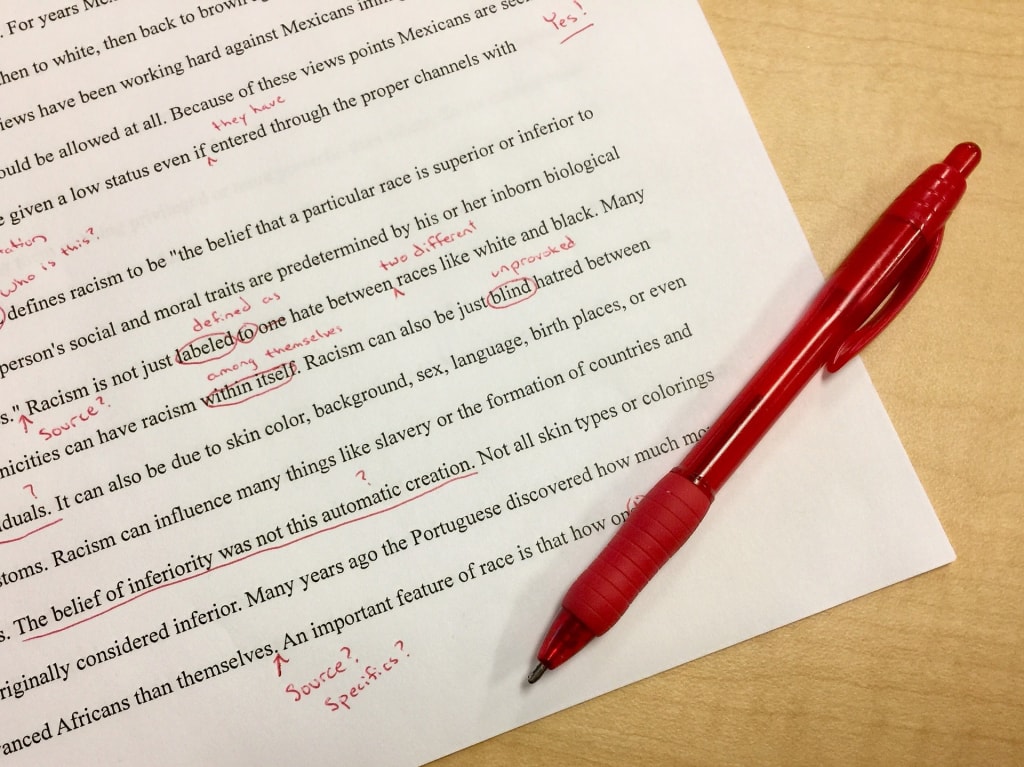The 3 Elements of Writing: Inspiration, Imagination, and Perspiration
But the greatest of these is perspiration

So, you want to be a writer, but you aren’t sure you can write. Like any craft, writers learn and perfect their skills. There aren’t any shortcuts, but there is a formula that will transform a normal person with average abilities into a published author.
Writers need three things: inspiration, imagination, and more than anything else the willingness to work hard.
1. Writing and inspiration
People assume great writing requires one thing: a vivid imagination. But I disagree. What writers require is a catalyst that ignites their thinking. Here are examples of real-life events that inspired three well-known movies:
A dream inspired the series of stories that became the movie Alien
An actual shark attack inspired the movie Jaws
Ed Gein, a real-life serial killer, inspired Silence of the Lambs
Here’s an example from Stephen King’s The Shining
King and his family stayed at the Stanley Hotel in Colorado. It was late in the season. The building with a few exceptions was empty of guests and reportedly haunted. This provided the inspiration for The Shining. In his book, Stephen King writes the story of a family, hired as caretakers, who spend a winter alone in the Overlook Hotel with devastating results.
How many people stayed in that same hotel late in the season? How many of them wandered the halls and felt the tingle of something mysterious. Maybe they took a turn down a hallway and thought they saw something out of the corner of their eye. I’m guessing some dad or mom went back to their room and told their children they were staying in a haunted hotel, and they even caught sight of a ghost.
Over the years, that scenario may have been repeated dozens or hundreds of times. Having a vivid imagination isn’t limited to writers. Parents love tweaking their children with something scary. But it was King who wrote the story.
The first element of being a writer is waiting for an idea that inspires a story or article. It isn’t something you force. It just happens. But you can encourage it by asking yourself questions. Here are some examples of what to ask:
What if the hotel is haunted?
What if a family gets stuck in the hotel all winter and can’t leave?
What if one of the family members has mental problems, becomes delusional, or even possessed?
Writers ask themselves questions about normal events. They wonder if something they’ve learned or experienced could turn into a story or article. And they look for a twist that spurs their imagination.
2. Writing and imagination
When I was a kid, I loved horror movies. I still love them. But I always wanted the show to be scarier, more intense. When I was a child, I could see things at night moving in the crack of a partly opened closet door. Or I would jump from my bed so the thing that lived under my bed couldn’t grab me. But as I got older, it took more to scare me, so I created a scarier experience.
Friday night was my monster movie night. My parents would go to bed around 11 p.m. It was the weekend, so I’d stay up to watch the scary show playing that night. But just watching a scary movie wasn’t enough. I wanted to feel frightened. So I created a scarier environment. I would sit alone, in a chair, in the middle of the living room, with the lights off. And in the dark, I would watch the movie. Before long, I would imagine things moving in the dark behind me. I could feel something creeping up on me, reaching out for me.
I would force myself to sit in that chair and not move. No matter how frightened I felt, I would not give in to my fear. And I watched the movie to the end. And it never failed to scare me.
The goal of a writer involves creating an environment that stimulates the mind. It’s important to feel and believe something is true. Anything short of believing becomes a lie. And writers, even those who write fiction, should always tell the truth.
The reason imagination follows inspiration is that whatever inspired the story doesn’t tell the entire story. It is the spark that fires our imagination. It is our imagination that creates the story. It tells us the who, what, when, where, and why.
In Stephen King’s The Shining, he used his creative mind to show us:
Who the players are in his story
What happens to them
When did it happen
Where did it happen
And why did it happen
Stephen King is a master of the craft because he knows how to answer all these questions as he builds layer upon layer of dread. And by the time we finish reading his book, we become believers in his tale. We allow our imagination to believe in the world he’s created.
If you are writing a short story or a novel, you need a cast of characters, a location, a time, and an event that will tell a story. That is the framework of a story. In your imagination, you create another world with a beginning, middle, and end.
Or if you are writing an article or non-fiction book, you explain a process or build a set of detailed, easy to understand, step-by-step instructions. Even in writing non-fiction, you use your imagination to help your reader understand how to do something, learn about someone, explain a process, or resolve a mystery.
After having written the story or article, the actual work of writing is next. In this step, you take the rough structure of what you’ve written and mold it into something wonderful. This is what Stephen King says is a little like “murdering children”
3. Editing and perspiration
Editing what you’ve written is like exercising. It’s work. And it isn’t easy. If people tell you otherwise, don’t believe them. Most people who write about how they have “the” method that makes writing easy, are selling a course, are uninformed or lying.
The brutal truth is there is no fast-track to success. There are no secrets. There are no shortcuts. But there is exercise, work, and perspiration.
I’d love to sugarcoat this thing we call writing. I’d like to make you believe that all you have to do is sit down, drink something warm, and write something profound in one session. Then you send it out. The first publisher who gets your work publishes it. Thousands of people read it and they love it. And then the money rolls in. After that, all you have to do is do it again and again. It’s as simple as wash, rinse, repeat.
It won’t happen.
I like this quote from Stephen King:
“When your story is ready for rewrite, cut it to the bone. Get rid of every ounce of excess fat. This is going to hurt; revising a story down to the bare essentials is always a little like murdering children, but it must be done.” — Stephen King
King is the best at what he does. And he’s done it for over 40 years. He knows what he’s talking about.
Editing is brutal and hard work. It involves using a scalpel, surgical saw, and a medical mallet. It’s dirty, painful, and bloody. You go through your story and rip it apart. At this stage, you realize you connected an arm bone to the ankle bone. That’s a big problem. But there is no choice. You cut off the arm and reattach it to the shoulder. You’re going to have to do some suturing because you left open wounds. And you’ll find some growths that don’t belong. They’ve got to go, too. Maybe you missed the heart of the story. Don’t worry. You’ll catch it in the rewrite. But you must do some open-heart surgery to get the heart in place and beating right.
And when you’re done operating on your story, you must go over it again. You’ll always find something more that needs a little fixing. Nothing major, but you want to make it right. So a snip here, a cut there, and a few more sutures, and you’re done.
To be a writer means rewrite… edit… rewrite… edit… rewrite… publish. But there is danger. At some point, rewriting can become an excuse not to publish. You’ll always find more things you can fix, but if they don’t make a difference, send your story or article out into the world.
Final thoughts
Anyone can write, but not anyone can be a writer. It isn’t because people don’t know how to make words into sentences and then into paragraphs and chapters. It’s because writing done right isn’t easy. It’s hard work and often discouraging. And it’s a lonely business.
But when you’ve finished all the hard work, and you believe your story can live on its own, you must launch it out into the world. It’s a little scary sending your child to live or die on its own. And you wonder how it will do. But it is a fantastic feeling knowing that you’ve finished your work and others will read and love it.
Have you wanted to write but haven’t done it? What’s held you back?
About the Creator
Dayton Parks
Inspiring writers and the world through Self Development






Comments
There are no comments for this story
Be the first to respond and start the conversation.